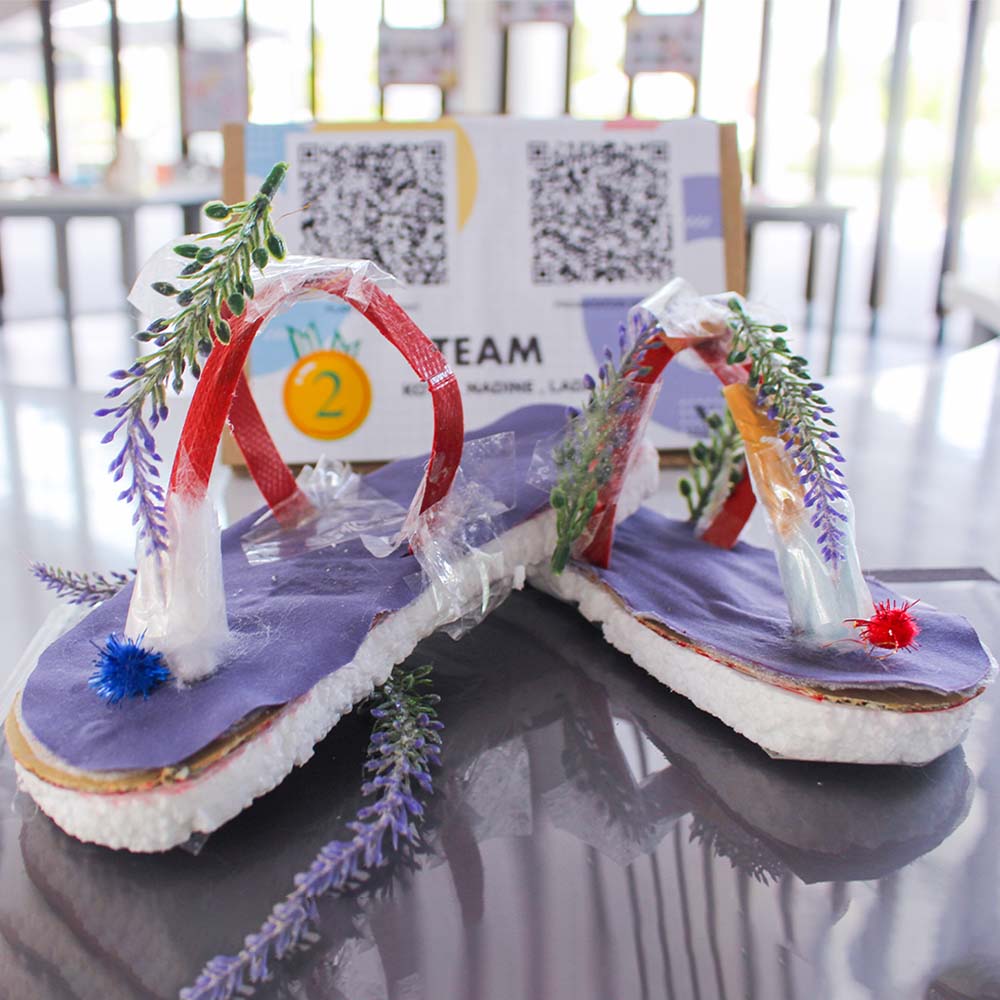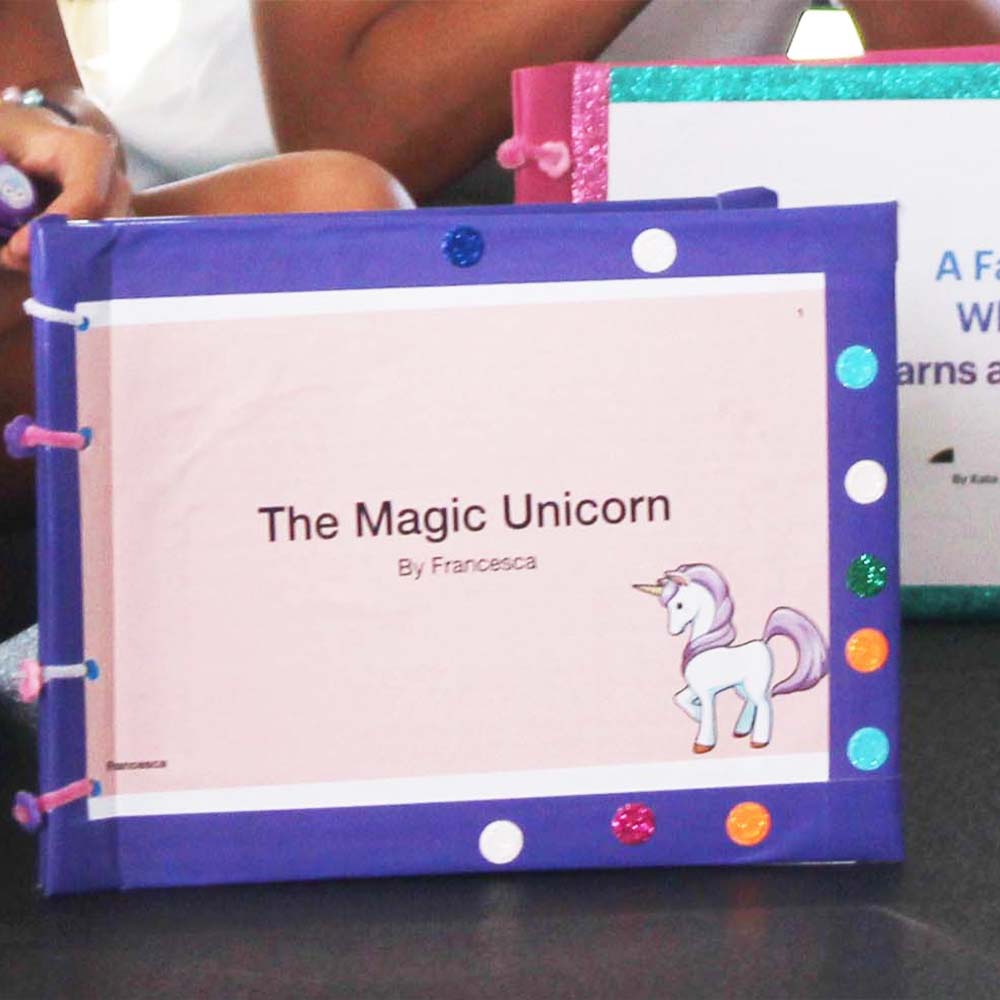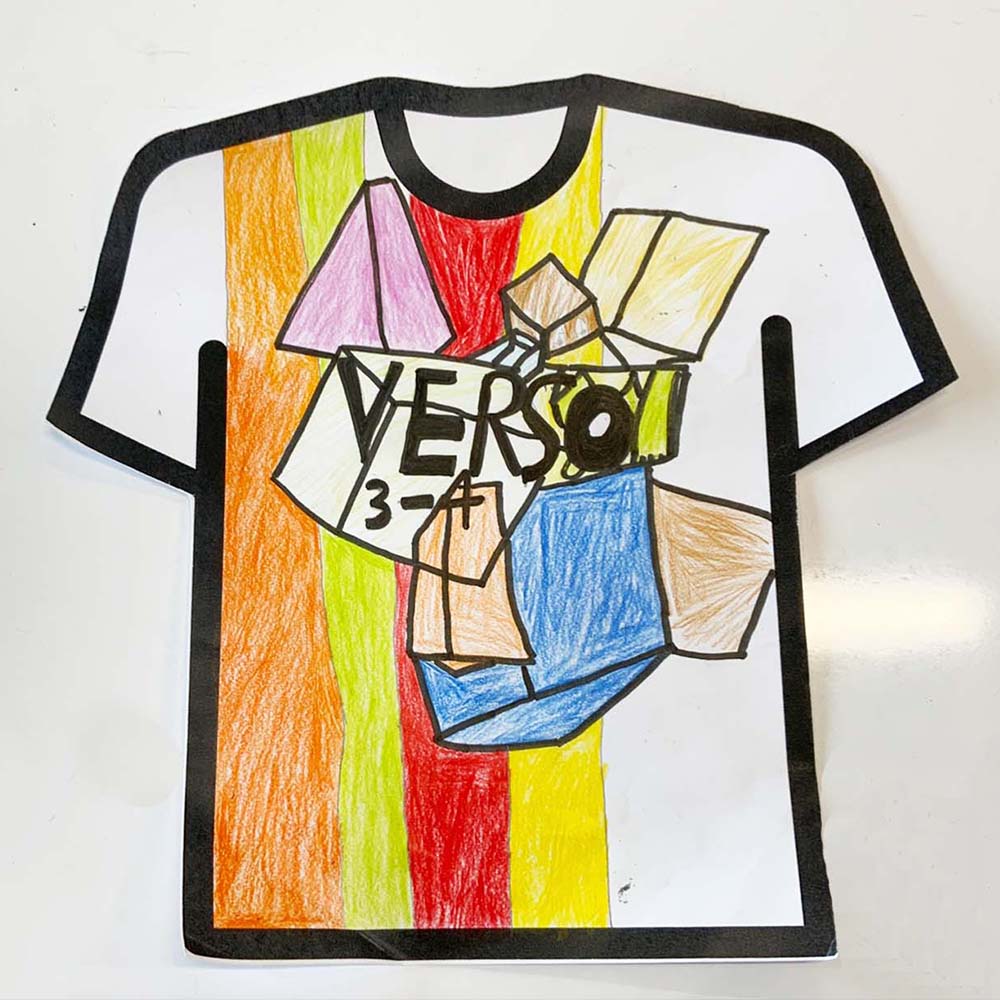lower Loop
DISCOVERY AND EXPLORATION FOR PRE-K, KINDERGARTEN AND ELEMENTARY
The Lower Loop is our elementary section, fostering the VERSO mindsets through hands-on experiences and working together, developing the love of learning through questioning and strengthening oral communication skills.
In our Lower Loop (Pre-Kindergarten - Grade 4) , we understand the value of play and the intuitive, curious choices our students make as learners.
LOWER LOOP
CURIOUS TO EXPLORE
We engage our learners in a series of projects and activities centered on their interests and needs, igniting their curiosity, and encouraging them to look for answers to a wide range of questions. Learning is meaningfully connected across disciplines to help children develop a strong set of foundational academic skills such as reading, writing, and mathematical thinking, required for learners to think independently and to express themselves.
FOSTERING OUR MINDSET
INSPIRED TO CONNECT
Our Early Years program supports each child’s natural development, valuing the role of play and the intuitive choices children make as learners. We understand the interconnectedness of sensory and physical development to the cognitive, social, and emotional growth of every individual.
As the learners progress through Grades 1-4 , their self- confidence will grow. Our focus on inquiry, and self-directed learning will empower them to take decisions, make choices, and build resilience. They will learn to apply and connect their learning in meaningful ways to the world around them.
Our Lower Loop Learning Targets.

EARLY YEARS
- Build oral language through play
- Rhyme, match words with beginning sounds, and blend sounds into words
- Use a combination of drawing, dictation, and writing to share ideas and feelings
GRADE 1
- Gain independence as an emerging reader and writer
- Think about reading and discuss ideas from simple stories
- Speak in complete sentences
GRADE 2
- Gain more confidence as a writer and reader
- Use newly learned words and phrases to express ideas orally and in writing
-
Attention to formal and informal uses of language
GRADE 3
- Read with fluency and confidence to build knowledge
- Write clear sentences and paragraphs on a range of topics, drawing on an expanding vocabulary
GRADE 4
- Build stamina and skills to read and comprehend challenging text
- Build their ability to explain through thoughts about their reading
- Write effectively across a variety of genres

EARLY YEARS
Introduction to concepts, skills, and problem solving related to:- Counting, representing, and comparing numbers
- Describing shapes and space
- Develop and communicate mathematical thinking
GRADE 1
Introduction to concepts, skills, and problem solving related to:- Addition and subtraction within 20
- Number relationships and place value
- Linear measurements
- Composing and decomposing shapes
- Develop and communicate mathematical thinking
GRADE 2
Introduction to concepts, skills, and problem solving related to:- Number relationships and place value
- Fluency with addition and subtraction
- Measurement and estimation of length
- Describing and analyzing shapes
- Develop and communicate mathematical thinking
GRADE 3
Introduction to concepts, skills, and problem solving related to:- Addition and subtraction
- Multiplication and division within 100
- Fractions
- Area and perimeter
- Measurement and estimation of length
- Describing and analyzing shapes
- Develop and communicate mathematical thinking
GRADE 4
Introduction to concepts, skills, and problem solving related to:- Fluency with multiplication and division of whole numbers and fractions
- Adding, subtracting and multiplying fractions
- Measurement and estimation of length, time, liquid volumes, & mass
- Analyzing and classifying shapes based on their properties
- Develop and communicate mathematical thinking

EARLY YEARS | GRADE 1 & 2
Understand relationships between objects, Plan and carry out investigations, Construct explanations, and Develop a deeper understanding of:- Motion and properties of matter
- Relationship between sound and vibrating materials
- Factors that impact plant and animal survival
- How objects can be changed or improved through engineering
GRADE 3 & 4
Evaluate methods for collecting data, Revise models based on evidence, Analyze data to make sense of phenomena, and Develop a deeper understanding of:- The effects of chemical reactions, forces, and energy
- Interactions of different organisms and the environment
- Interactions of the geosphere, biosphere, and hydrosphere
- How engineering design can be a regular part of problem solving

EARLY YEARS & GRADE 1
- Identify similarities and differences between Home, Communities, Individuals
- Describe how human activities alter places
- Identify situations in which social actions are required
GRADE 2 & 3
- Identify multiple perspectives by comparing and contrasting points of view
- Recognize the relationship between geography, economics, and history
- Show respect in issues involving differences and conflict
- Identify rights and responsibilities within the classroom, school, and community
GRADE 4
- Identify causes and effects using examples from current events and historical events
- Describe how people in positions of power can influence people’s rights and freedom
- Identify rights and responsibilities in various contexts
- Participate in activities that focus on an issue
Below are key points that distinguish the performance of Novice, Intermediate, and Advanced language learners in reading, writing, speaking and listening. The description outlines the range of performance for the given mode of communication: interpersonal, interpretive, or presentational.

NOVICE
- Understands the general topic and some basic information from familiar and everyday contexts by recognizing practiced or memorized words, phrases and simple sentences.
- Communicates information on very familiar topics using a variety of words, phrases and sentences that have been practiced and memorized.
INTERMEDIATE
- Understands main ideas and some details on familiar topics from sentences and groups of sentences.
- Communicates information and expresses own thought about familiar topics using sentences.
- Handles short social interactions in everyday situations by asking and answering a variety of questions.
ADVANCED
- Understands main ideas and supporting details on a wide variety of familiar and general interest topics from complex, organized texts.
- Expresses self with detail and organization on familiar topics and concrete social and academic topics.
- Confidently handles situations with unexpected complications.
Robotics is very popular among our learners and combines engineering and programming in a fun and interactive way while introducing them to 21st century skills such as critical thinking, problem solving, goal setting, teamwork, creativity and communication.

At VERSO, our students work in teams to build robots independently using the VEX IQ Robotics system. They build their own robot prototypes to learn about typical robot parts such as gears, motors, and sensors, as well as how to programme robots for autonomous operation.
Student-led VERSO Robotics Teams provide a pathway for students who want to further explore robotics through established competitions. Our VERSObotics team has participated in several scrimmages and competitions with other international schools in Thailand, including the VEX IQ Robotics Challenge, an annual robotics competition format that is popular worldwide.
In the Lower Loop, learners begin their robotics journey using mTiny robots. They are able to program these to move in different ways and are challenged to complete quests with these. Once they have developed their skill level they will move onto working with the VEX Go systems..



